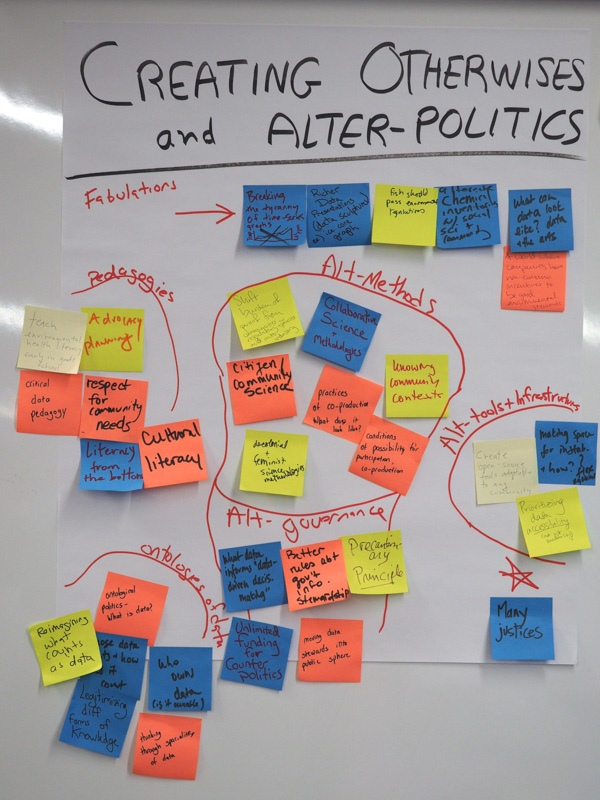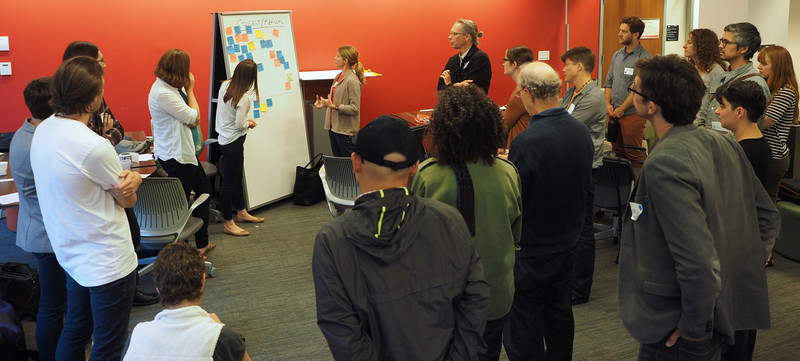On August 28 at Northeastern University in Boston, EDGI convened an interdisciplinary group of Science and Technology Studies (STS) scholars, civic tech practitioners, and community science organizers who work on either environmental or data politics to begin collectively imagining Environmental Data Justice (EDJ) as a framework for engaged STS. We came together to create a vision of EDJ that critically recognizes that data is not neutral, but is imbued with politics through its creation, distribution, and access.
EDJ brings together the concerns of the emergent area of data justice with the long standing principles of environmental justice, thereby foregrounding the ways digital technology and technoscience are integral to twentieth century environmental justice. It draws together lessons from growing work on data justice, an emergent field which is centrally concerned with the ways state produced data can explicitly work in the service of racisms, such as in the Trump Administration’s creation of a database on “Illegal Immigrant Crime” by the new Victims of Immigration Crime Engagement Office. Thus, data justice has focused on resisting surveillance, racist policing, and defending privacy. Environmental justice, in contrast, tends to call for better and more monitoring and information, as well as the preservation and accessibility of government environmental data. EDJ asks how we might at the same time critically address practices of industry self-reporting or the exclusion of communities in research design, together with questions about who cares for data that communities want and how might data help drive the enactment of alternative futures and not just reactive counter knowledges.

Drawing inspiration from the “Generating Shared Principles for Design Justice” process at the 2016 Allied Media Conference in Detroit, we asked participants to collectively answer the following two questions: What is Environmental Data Justice? How is it enacted?
Before the meeting, we circulated a set of EDJ Prompts and Bibliography collectively written by EDGI members. At the meeting, we first broke into five small groups to discuss statements “Environmental Data Justice is….” and tactics “We do this by….” along four axes: Critical Tactics; Care Tactics; Tactics of Consent/Refusal; and Tactics of Fabulation and Alter-Politics. In the second round, we broke into writing groups based on affinities with the above four categories to collectively write a series of slides. View the results of our work below!
Next Steps
Creating an EDJ framework will not happen overnight. The insights from this event has helped to shape the concluding vision of EDJ in our upcoming report PURSUING A TOXIC AGENDA: Environmental Injustice in the Early Trump Administration. We hope for the work of developing an EDJ framework to continue, involving more communities and voices.
Email EnviroDGI@protonmail.com (learn more about sending secure email to us) with a short bio with what you are interested in (take a look at our steering committee and members pages for examples).
This event is made possible by support from the Doris Duke Charitable Foundation.
Images courtesy Mike Hucka.

